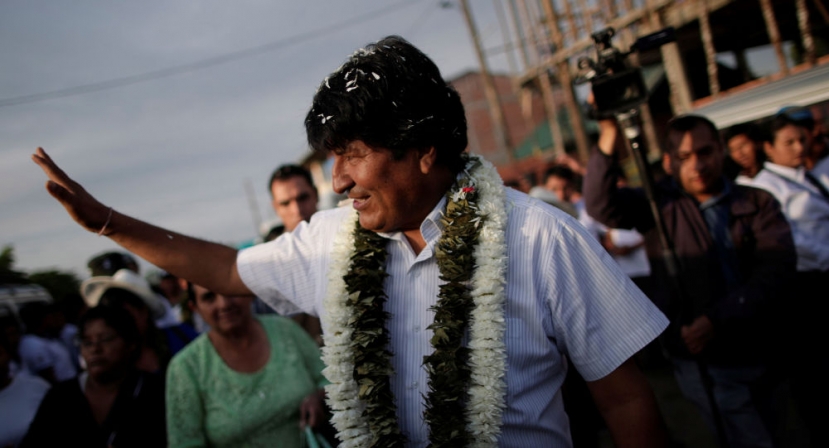Morales left for Mexico earlier in November after the Bolivian military urged him to step down in the wake of violent protests over the results of the recent presidential election. On Wednesday, Morales said during a press conference that he wanted international mediators to engage and help him return to Bolivia.
"We have been told that the United States is against my return [to Bolivia]. As for me, I want to return as soon as tomorrow. We are waiting for the de facto government to give us guarantees. If something happens to me, the interim government will be responsible for it," Morales said.
Morales warned the country’s armed forces that they will not be able to avoid being held accountable for cracking down on protesters, saying that international law was superior to the interim government’s decree allowing the military to suppress the demonstrators.
Last week, Bolivia’s interim President Jeanine Anez issued the decree stipulating that Bolivia's armed forces were exempt from criminal liability for possible offenses perpetrated while restoring order following her ascent to power. The decree was criticized by the Organization of American States (OAS) that said that at least 23 people had been killed and more than 700 others had been injured in the recent clashes between the security forces and demonstrators rallying against Anez’ government.
"I would like the Armed Forces to know that international norms are above any law or decree and you will not be able to avoid responsibility. There were crimes against humanity," Morales said on Wednesday, commenting on the growing number of casualties during the protests against the Bolivian interim government.
Morales noted that peace in Bolivia remained a priority for him.
"If [the United States and the interim Bolivian government] are so afraid of me, I do not want to run as a candidate in the upcoming election. And if there is anything I can do for peace, I will do it," the former president insisted.
The OAS human rights commission announced on Tuesday that it would pay a working visit to Bolivia from 22-25 November to look into the country's human rights situation amid the ongoing protests.
Anez came to power after the resignation of Morales earlier in November amid violent protests against results of presidential elections, in which he secured his fourth term in office. Morales then fled to Mexico, calling the situation in Bolivia a coup. However, the ex-president's supporters engaged in fresh rallies against Anez’ government, which led to violent clashes with the security officers.

